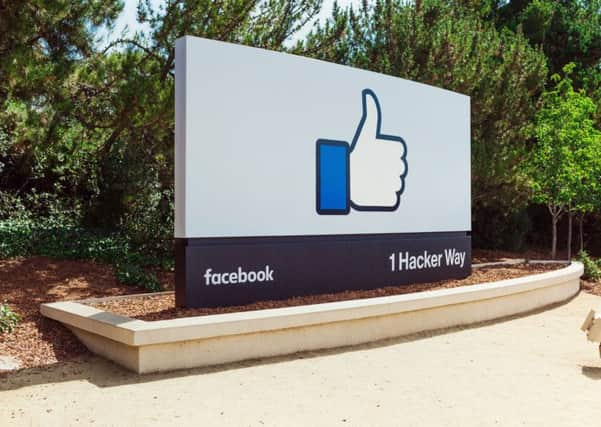Facebook to add ‘dislike’ button, says Mark Zuckerberg


The network’s 1.5 billion worldwide users will be able to show their displeasure or empathy with a subject in a new way after the technology company revealed it is working on a button.
Founder Mark Zuckerberg announced the move at a public Q&A session at Facebook’s headquarters in Menlo Park, California.
Advertisement
Hide AdAdvertisement
Hide AdThe 31-year-old billionaire said: “People have asked about the dislike button for many years. We’ve finally heard you and we’re working on this and we will deliver something that meets the needs of the larger community.
“We’re working on it and are very close to shipping a test of it. We didn’t want to just build a dislike button because we don’t want to turn Facebook into a forum where people are voting up or down on people’s posts.
“That doesn’t seem like the kind of community we want to create.”
Facebook’s “like” button – which enables users to approve a post by someone else – has become one of the website’s main signature features.
Mr Zuckerberg added: “People aren’t looking for the ability to downvote people’s posts, what they really want is to be able to express empathy.”
He acknowledged that not all moments are happy ones, and referred to people wanting to share their feelings when a relative dies, or express thoughts on the current refugee crisis.
He said: “Your friends, and people want to be able to express that they understand and that they relate to you, so I do think that it is important to give people more options than just like as a quick way to emote and share what they’re feeling on a post.”
Depending on how the test version goes, the alternative could be rolled out to users more broadly, he said.
Advertisement
Hide AdAdvertisement
Hide AdThe question was raised by a user in Cairo, who suggested “I’m sorry”, “Interesting” or “Dislike” buttons.
However Liam Hackett, the chief executive of charity Ditch The Label, said the change is negative and could become a huge issue.
He suggested the name of the button should be changed to an ‘empathy button’, so it is not used to criticise personal pictures.
“It could be used as a tool for cyber bullying in an almost indirect way. It is quite a subtle way of doing it,” he said.
“It would be better to change the dislike button to more of an empathy button, to use when a genuinely bad thing has happened. We know that half of young people want to change how they look already, without those kinds of things.”
Research by the Brighton-based charity showed more people experience cyber bullying on Facebook than any other online platform. Mr Hackett added: “A dislike button is a subtle way of really undermining someone’s self-esteem.”
Last month Facebook marked a milestone after it, for the first time in its history, recorded one billion users in a single day.